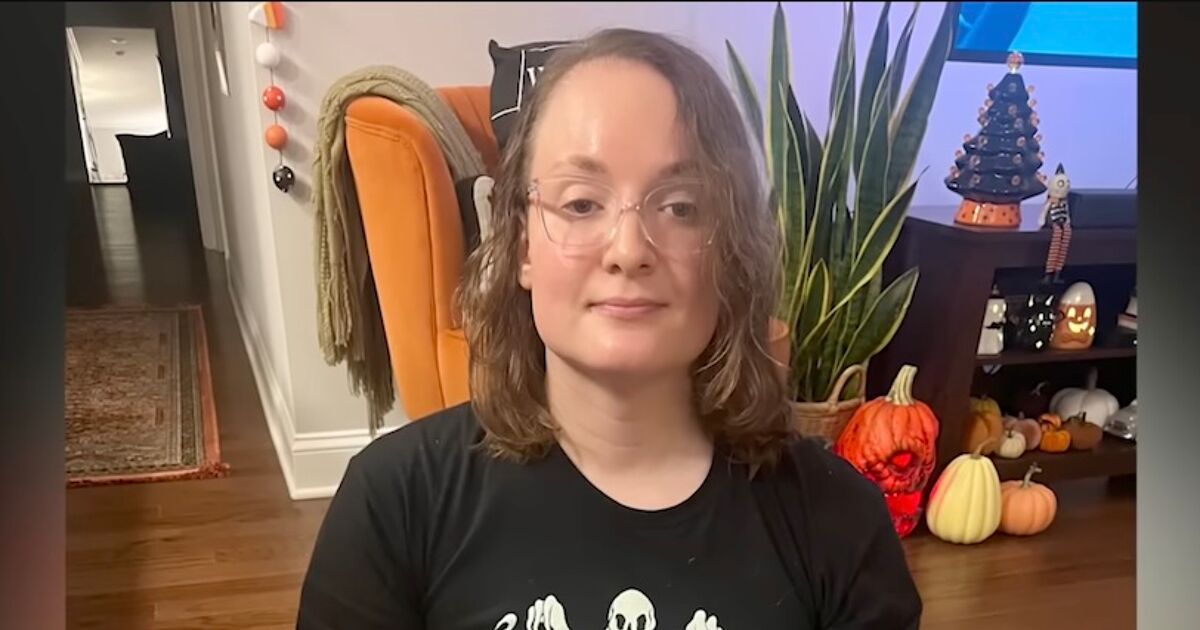
Jennifer Trefzger may never have found out about her cancer if she hadn’t been receiving gender-affirming care. Her story is a reminder about how gender-affirming care is, in fact, life-saving care; especially at a time when the president seeks to end access to such care.
She had always experienced fatigue, random digestive issues, and other symptoms that her primary care doctor had dismissed. But then, in October 2017, her endocrinologist—who regularly checks her iron levels as part of her ongoing hormone replacement therapy (HRT)—noted that her iron levels had “dropped to an alarmingly low level,” Trefzger recently wrote.
Related
Gender-affirming care improves trans men’s quality of life
A new study provides crucial information on a community that research often overlooks.
Trefzger, who was 23 years old at the time, scheduled a colonoscopy, and the technicians found a tumor blocking part of her descending colon. She scheduled a surgery soon after, and the doctors removed nearly eight inches of her colon and 25 lymph nodes, two of which tested positive for cancer.
Never Miss a Beat
Subscribe to our newsletter to stay ahead of the latest LGBTQ+ political news and insights.
Subscribe to our Newsletter today
She then underwent chemotherapy in early 2018 and, by September, all traces of the cancer had vanished. However, in February 2020, she received facial feminization surgery and awoke from the procedure unable to see out of her left eye. It turned out that she had suffered a rare stroke that permanently damaged her retina.
A subsequent scan revealed that she had nodules in her lungs that tested positive for stage IV cancer. In 2021, she underwent immunotherapy and, by autumn of that year, she had two surgeries to remove the nodules. She then underwent more chemotherapy treatment until its conclusion in January 2022.
Now, at age 31, she has been in remission for over three years.
“I think a lot about how close I came to not knowing. If my endocrinologist hadn’t been checking my iron as part of my HRT, my cancer could have gone undiagnosed for much longer. And the longer colon cancer goes untreated, the worse the odds get. Gender-affirming care quite literally saved my life,” she wrote.
Trefzger shared her story with Cheeky Charity, an organization dedicated to fighting colorectal cancers. The group points out that 10% of colorectal cancer cases are diagnosed in people under 50.
Also, the higher rates of tobacco use and stress-related conditions can make LGBTQ+ community members more susceptible to these cancers. LGBTQ+ people are also more likely to face challenges while accessing preventative care, including fewer affirming healthcare providers, potential stigma, and limited tailored health resources, the organization wrote.
“Creating safe, inclusive spaces in healthcare and offering culturally sensitive information are vital to supporting this community’s health,” the group’s website states. “Providing accessible, LGBTQ+ affirming resources on colorectal cancer can help increase early detection and improve outcomes.”
Subscribe to the LGBTQ Nation newsletter and be the first to know about the latest headlines shaping LGBTQ+ communities worldwide.